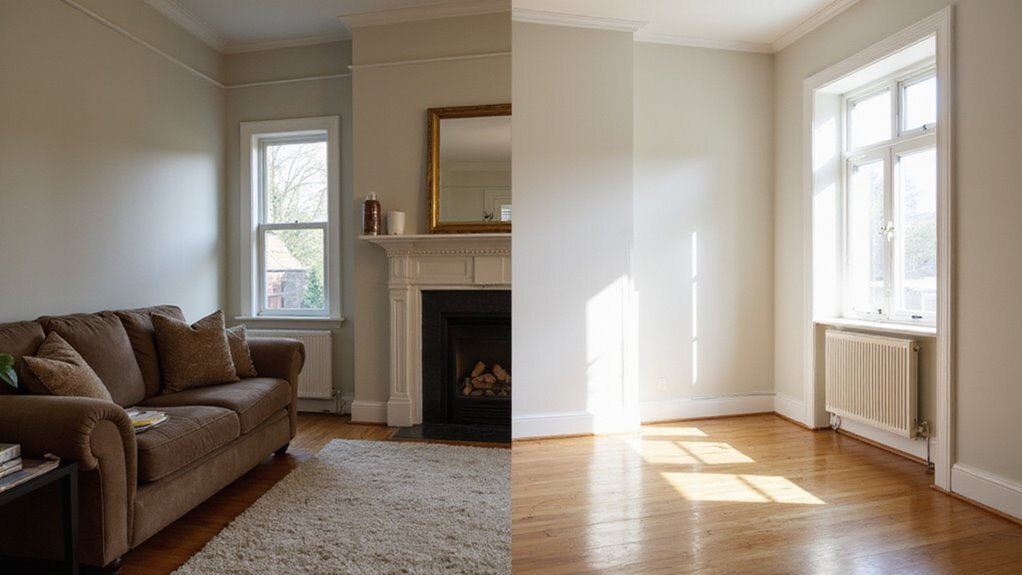Deciding whether to sell a rental property with tenants or vacant is a tough choice for many landlords. Each option affects your profits, your selling timeline, and even your legal rights. You need to know which choice will help you meet your goals.
This decision can become stressful. Keeping tenants might limit your buyer pool or slow down showings. But selling a vacant property could mean months without rental income and higher maintenance costs.
The best approach is the one that fits your financial goals, timeline, and the current real estate market. You must weigh both sides carefully before making a move. This blog will guide you through the pros and cons so you can make the right decision.
Key Takeaways
- Selling occupied properties ensures immediate rental income and attracts investors seeking stable cash flow.
- Occupied homes have limited showing flexibility and may suffer from reduced visual appeal due to tenant belongings.
- Vacant homes allow for improved staging and faster sales but result in lost rental income during the listing period.
- Tenant cooperation is crucial; uncooperative tenants can delay showings, inspections, and the closing process.
- Vacant homes appeal to both investors and owner-occupants, potentially increasing buyer pool and sale price.
Understanding Tenant Rights During a Sale

When selling a rental property, you must follow tenant rights to avoid problems. You cannot break existing lease terms during the sale. Tenants keep their rights even if the property changes owners. Many renters have leases that last over twelve months. If you sell, you must notify tenants as state laws require. Written notice is often needed before any changes.
The new owner must honor all current lease agreements. Trying to evict tenants without legal reasons can cause delays and legal trouble. If you face issues, review the lease and talk openly with your tenants. Sometimes, selling to cash home buyers offers a faster solution when time or tenant complications are involved.
Properly handling lease transfers helps avoid risk and lawsuits. Respecting tenant protections also ensures you follow the law during the sale. If you follow these steps, the sale process will go smoothly. It is also important to resolve outstanding liens or mortgages before the sale, as these can block the property transfer and create complications for both you and the buyer.
How Occupied Properties Attract Investor Buyers
When you sell a rental property with tenants in place, you offer investor buyers immediate rental income and a proven tenant payment history. This documented cash flow appeals to buyers who want to minimize vacancy risk and stabilize returns from day one. Data shows that properties with established occupancy often command greater interest from investors seeking low-risk, income-producing assets.
Additionally, investor buyers are often attracted to occupied rentals because they can enjoy financial benefits associated with a quicker sale and immediate revenue stream. Investors are typically drawn to properties where established occupancy reduces their need to search for qualified tenants, streamlining the acquisition process.
Immediate Rental Income Stream
Occupied rental properties offer immediate rental income because tenants are already living there. Investors start receiving rent from day one. This direct cash flow is attractive to buyers who want fast returns.
If you sell such a property, you can highlight this benefit in your marketing. Proven rental income often leads to a higher selling price. Properties with active leases may also sell more quickly.
Investors often prefer properties that reduce the risk of vacancies. Ongoing income helps cover mortgage payments and lowers financial risks. If buyers want passive income, these properties are a strong choice.
You can market your property as a “turnkey investment” if tenants are in place. This approach appeals to local and out-of-state investors. Data shows that properties with tenants attract more attention and sell faster.
Established Tenant History
An established tenant history shows that renters have paid on time and followed lease agreements. Properties with a good tenant record attract investors who value stability. If you are selling a rental with paying tenants, it is more appealing than a vacant property.
Investors prefer properties where tenant screening and payment habits are proven. If a property has reliable tenants, it can sell faster and for a higher price. The National Multifamily Housing Council reports a possible 5% increase in selling speed for such properties.
If lease agreements are in place, the transfer process becomes easier for buyers. Buyers can see clear records and judge the risk more accurately. This transparency allows them to better predict future rental income.
Reduced Vacancy Risk
Properties with reliable tenants lower vacancy risk for buyers. Investors can expect steady rental income right after purchase. This makes occupied rentals more attractive than empty ones.
A current tenant means no need to find someone new. Investors avoid spending time and money on advertising for tenants. Security deposits also transfer easily during the sale.
If a tenant is already in good standing, eviction is less likely. Investors can skip the stress and cost of removing problem tenants. Holding costs are also lower since there is no gap in rental income.
Homes with tenants often sell faster and closer to the asking price. Data supports that active leases can boost a property’s market appeal. Occupied rentals offer several clear advantages for investors.
Challenges of Scheduling Showings With Tenants
Scheduling showings with tenants can be challenging and often slows down the sales process. Tenants have the right to privacy, so you must coordinate with their schedules. This can make it harder for buyers to view the property. Buyers may also consider neighborhood comps when evaluating your tenant-occupied property, which makes flexibility in showings even more important.
Tenant-occupied homes typically receive fewer showings than vacant ones. If tenants restrict access to certain days or times, it limits flexibility for buyers. Missed or rescheduled showings can increase the time your property stays on the market.
Sellers must give tenants proper notice, often 24 to 48 hours, before a showing. If buyers need to see a home quickly, this requirement may cause delays. These hurdles can make your property less attractive in a competitive market. Planning ahead by enhancing curb appeal can help maximize buyer interest during limited showing opportunities.
The Appeal of Vacant Homes to Owner-Occupiers
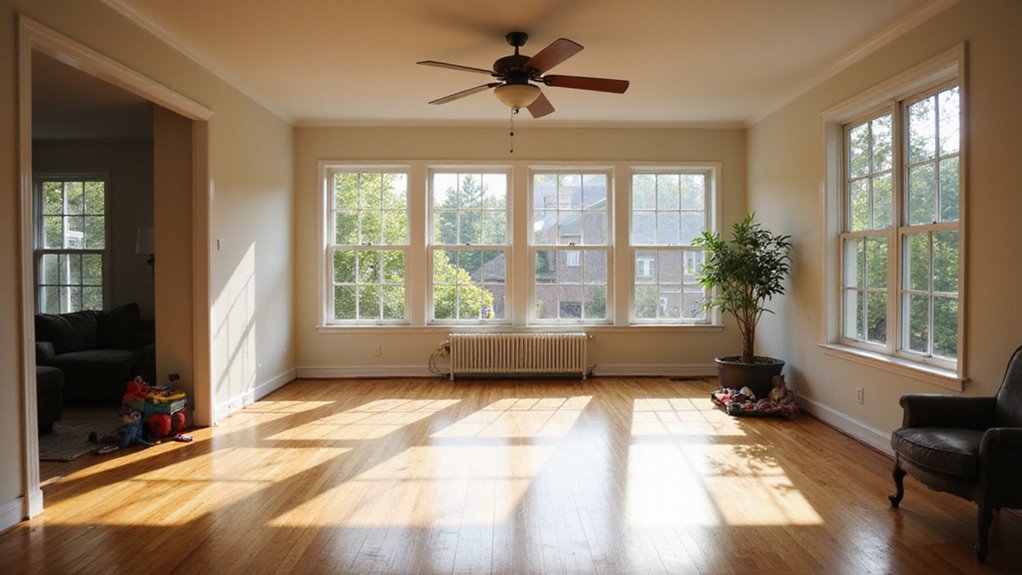
Vacant homes attract owner-occupiers because they are easier to imagine as your own. Buyers can see the true size of each room. They often feel a stronger connection and are more likely to make higher offers.
A vacant home lets you notice upgrades and features without any clutter. If buyers want to view the home, they do not face tenant scheduling issues. This makes the property more accessible for showings. Vacant homes also tend to have lower maintenance costs since there are no tenants to create wear and tear or require ongoing attention.
People can picture their own furniture in the space. Buyers can also check for repairs more thoroughly when the home is empty. If a quick move is needed, vacant homes are ready for immediate occupancy.
If you want to sell for more, a vacant home may help. Data shows they often sell faster and for higher prices than tenant-occupied homes. Buyers also appreciate the chance to inspect the property without disruptions.
Before listing, it’s wise to get an appraisal to gain a firm understanding of your home’s current value and help support your pricing strategy.
Financial Impact: Rental Income vs. Carrying Costs
Deciding to sell a rental property vacant or occupied depends on a clear look at rental income and expenses. If tenants stay, you keep collecting rent, which helps pay your mortgage, insurance, and management fees. If tenants leave, you may lose rental income and still pay these costs. Selling while the property is vacant can also mean you avoid holding costs that eat into your profits as the home sits on the market.
A vacant property means you pay all expenses yourself. If the home does not sell quickly, these costs can add up fast. You should estimate how long the property might stay on the market.
Tax rules also matter. Rental income is taxable, but you may deduct costs like mortgage interest and management fees. If you balance these factors, you can choose the best option for your finances. When evaluating offers, it’s also important to watch for pressure tactics that may push you to make hasty financial decisions.
Preparing a Property for Sale With Tenants Present
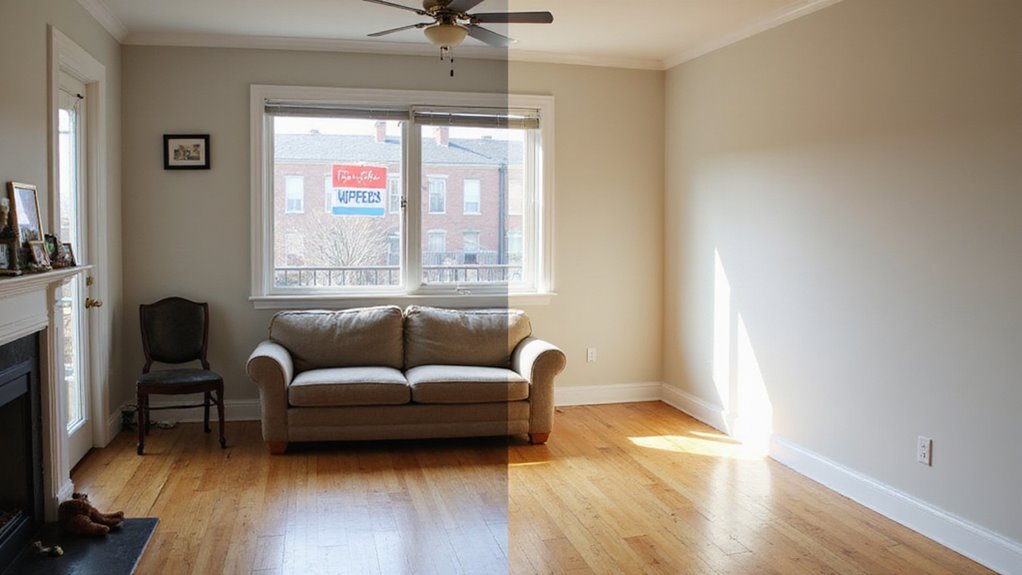
Selling a property with tenants can be challenging. You must prepare the property while respecting the tenants’ rights. Good communication with tenants is essential for a smooth sale. If tenants cooperate, the property is easier to show and sell. Cooperative tenants help speed up inspections and showings. Uncooperative tenants may delay the sale or limit buyer options.
Lenders often require a full inspection before approving loans. If tenants do not allow access, buyers may not get financing. Early planning helps avoid such problems. You should notify tenants in writing before showings or repairs. Offering small rewards can encourage tenants to keep the property clean. Scheduling visits at convenient times makes the process easier for everyone. Take clear photos to document the property’s condition.
These steps can help make the sale go smoothly. Proper preparation benefits both the seller and the tenants. Selling to cash home buyers can further simplify the process, as showings are minimized and the sale can close quickly even with tenants present. Additionally, working with no realtor fees can help maximize your profits when selling a tenant-occupied property.
Staging and Presentation Differences
Staging and presentation can greatly impact how well a property sells. If a rental is occupied, you have less control over how it looks. Tenant belongings and daily habits can make it hard to create a clean, attractive space. In some cases, the presence of tenants may also make it difficult to address potential infestations or structural issues before selling.
A vacant property allows for better staging options. You can use neutral furniture and good lighting to make the home more appealing. Buyers find it easier to imagine living in an empty, well-staged property.
According to the National Association of Realtors, staged homes spend 73% less time on the market. Vacant homes often attract more interest and higher offers. If you want the best results, consider selling the property empty for maximum flexibility.
Focusing on curb appeal enhancements can further increase buyer interest and help your property stand out in the market.
Legal Considerations and Required Notices
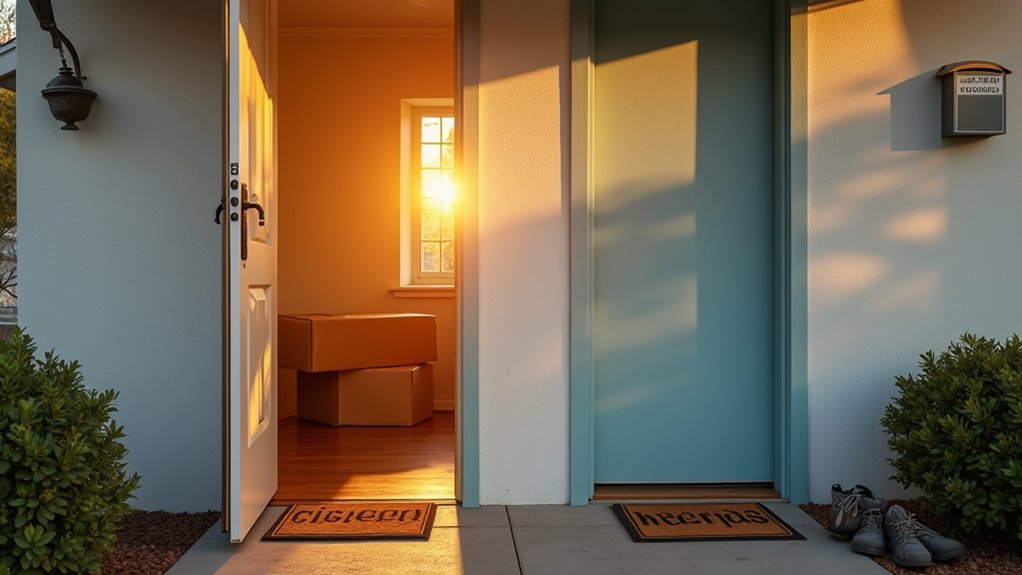
Legal requirements control how you can sell a rental property with tenants. You must follow laws for notices, disclosures, and lease transfers. These rules help protect both you and your tenants during the sale.
Most states require written notice before you enter for showings. You should check your state’s rules about how much notice you must give. Lease termination rules also differ by state.
If the tenant has a fixed-term lease, you usually transfer it to the buyer. You must tell the buyer about the tenant’s rights and the lease terms. Always include required tenant disclosures with your sale paperwork.
Keep records of all your communications with the tenant. Failing to follow legal steps may delay the sale or cause legal issues. If you are unsure about the process, consider getting legal advice. For a smooth transaction, it’s wise to seek insights from real estate agents or cash home buyers who are familiar with the legal aspects and can help ensure compliance.
Marketability and Buyer Pool Comparisons
The presence or absence of tenants affects how easy it is to sell your rental and who might buy it. Occupied properties mainly attract investors who want steady rental income. Vacant properties appeal to both investors and people looking for a home to live in.
Occupied properties usually have a smaller buyer pool. Showings must be scheduled, and buyers must honor the current lease. The price is often based on the rental income.
Vacant properties appeal to more buyers and allow flexible showings. There is no need to worry about leases. The value is based on the local real estate market.
If you want more buyers and higher demand, consider selling your property vacant. If you prefer a quick sale to an investor, keeping tenants may work better. Knowing these differences helps you choose the best way to sell.
Timing the Sale for Maximum Return
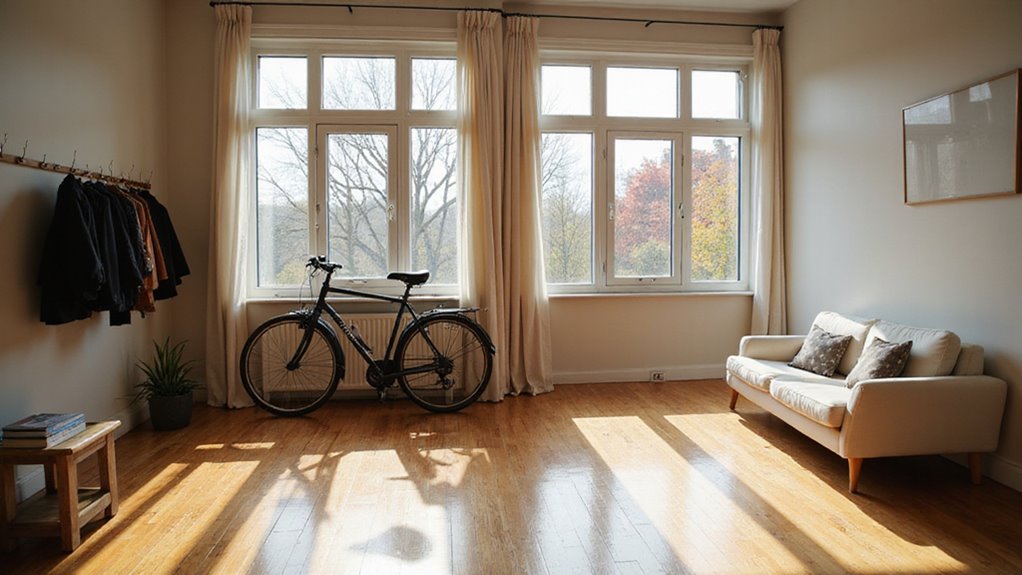
You need to consider current market conditions, as property values and buyer demand fluctuate throughout the year. Analyze your tenant’s lease expiration, since selling near the end of a lease can open your property to both investors and owner-occupants. Data consistently shows that listing during peak seasons, such as spring and early summer, can yield higher offers and faster sales.
Market Conditions Impact Timing
Real estate market conditions can change quickly, so timing your sale is important. Selling at the right time helps you get the best price. You should study trends before listing your rental property.
Check local inventory levels and how long homes stay on the market. Watch mortgage rates, as lower rates give buyers more purchasing power. Compare how demand for your property type changes throughout the year.
If your property has pet-friendly features or is energy efficient, wait until buyers want these qualities. Use data to see which features are most popular. Rising energy efficiency standards can also increase your property’s value.
Stay aware of changes in who is buying homes and what they want. Economic signals can also indicate the best time to sell. Careful timing can help you avoid slow sales and get better offers.
Lease Expiry Considerations
Lease expiry can affect how much money you make from your sale. If the lease is ending soon, you can sell to buyers who want to live there. This may attract more buyers and help you sell faster.
A long-term lease can appeal to investors who want steady rental income. If you renew the lease, you might find buyers who prefer less risk. Properties with expiring leases usually sell more quickly, as buyers like having immediate access.
If you evict tenants quickly to sell, you could face extra costs or legal trouble. You should weigh the risks of having the property sit empty. Timing your sale with the lease end can help you get a better price and more interest.
Seasonal Selling Advantages
Seasonal selling offers clear advantages for homeowners. Selling during peak seasons can help you get a better price for your property. The time of year can also affect how many buyers are interested.
Spring and early summer bring more buyers to the market. Homes often sell faster and for higher prices during these months. If your property is empty, it is easier to clean and stage for showings.
A vacant home allows for professional staging, which can attract better offers. More daylight in spring and summer gives buyers more time to view homes. Families with children often look to move before the new school year starts.
If you try to sell during fall or winter, you may see fewer buyers. Tenants might make it hard to schedule showings in these off-peak times. Consider the season and your property’s situation before listing your home.
Handling Tenant Cooperation and Communication
Selling a property with tenants requires good cooperation and clear communication. Tenant satisfaction can affect showings, access, and the timeline for closing. If you communicate well, the sales process is usually smoother.
Owners should give tenants advance notice before showings. Flexible scheduling can help keep tenants happy. Transparency about the sales process can also build trust.
Data from the National Apartment Association shows that satisfied tenants cause 20% fewer problems when a property is sold. Owners should explain tenants’ rights and any possible changes. Addressing tenant concerns early can prevent misunderstandings and protect property value.
Risk of Property Damage or Neglect
Selling a rental property with tenants can lead to property damage or neglect. Owners have less control over the property’s condition during this time. Tenants may not maintain the property well if they feel uncertain about their future.
Properties with tenants often need more repairs than vacant homes. Data shows tenants sometimes delay or ignore maintenance. Ongoing occupancy can also cause extra wear and tear.
Intentional neglect may happen if tenants feel unsettled. Landlords may also find it hard to inspect properties often. Regular check-ins and clear communication can lower these risks, but cannot remove them completely.
Transitioning Ownership With Existing Leases
Selling a rental with current leases means the new owner must honor those leases. This can attract investors looking for steady income. However, it also creates some legal and paperwork challenges.
Buyers want clear lease agreements and good records of tenant screening. If records are missing or leases are unclear, buyers may offer less. Sellers should prepare all documents before listing the property.
The table below shows important factors to consider during a sale:
| Factor | Impact on Sale |
|---|---|
| Lease Transfer Process | Builds buyer trust |
| Tenant Screening Quality | Affects buyer’s sense of risk |
| Lease Duration Left | Predicts future income |
| Law Compliance | Lowers legal risks |
| Tenant Payment History | Shows income reliability |
If you keep good records and follow local laws, your property will appeal to more buyers. Transparent information and organized paperwork can speed up the sale. Efficient lease transfer makes the process smoother for everyone involved.
Weighing Your Options Based on Local Market Trends
You should decide to sell your rental property occupied or vacant based on local market trends. Look at current sales data and buyer demand in your area. This helps you choose the best approach.
If the market is hot, vacant homes may attract buyers who want to live there. In areas with many investors, occupied rentals with tenants are often preferred. Some buyers may need special financing if the property has tenants.
Check how long similar homes stay on the market, both vacant and occupied. Compare local sales prices for each type. Research how many buyers are investors and what types of loans they use.
Tenant leases can affect who can buy your property. Some loans only work for vacant homes, while others are fine with tenants. Seasonal trends can also change how many buyers want rental properties.
Conclusion
Selling a rental property occupied or vacant both have clear advantages and drawbacks. If you want a faster sale and possibly a higher price, selling vacant may be best. If steady rental income or appealing to investors matters more, selling with tenants could be smarter.
If you choose to sell, consider your local market, tenant cooperation, and your financial goals. The right choice will depend on your individual situation and priorities. Each option has unique challenges and benefits.
If you need a quick, hassle-free sale, we buy houses for cash at Limitless Homes of KC. We can help you navigate your options and make the process simple. Contact us today to see how we can help you sell your rental property.
